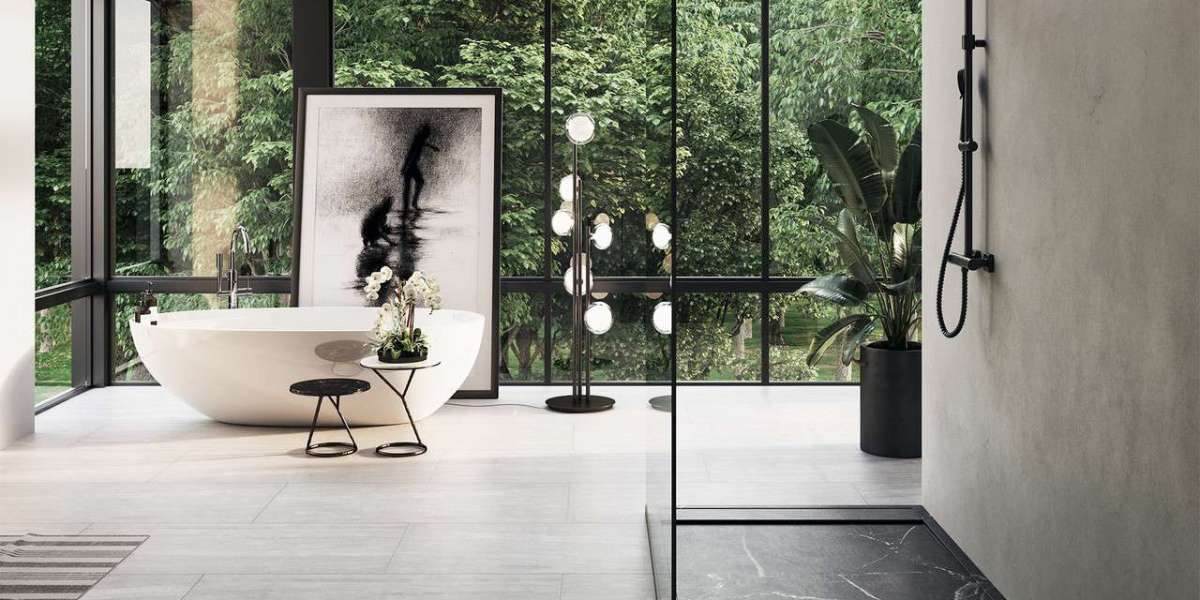When remodeling your bathroom, one of the most important decisions you'll make is selecting the right shower base. In many homes, the alcove shower offers a practical and stylish solution, thanks to its efficient use of space and customizable design. Designed to fit between three walls, an alcove shower base provides a solid foundation that meets both functional and aesthetic needs. To guide you through this essential choice, here’s an in-depth look at how to select the perfect alcove shower base, considering factors like size, materials, features, and installation.
1. Understanding the Alcove Shower Base
An alcove shower base serves as the floor of the shower, channeling water toward the drain while providing a comfortable, slip-resistant surface. Enclosed on three sides, it maximizes space and offers design flexibility, making it an excellent choice for small to mid-sized bathrooms. The right shower base not only aligns with your style and functional needs but also simplifies maintenance and cleaning, making your shower experience hassle-free.
2. Measure Your Space for a Perfect Fit
Before diving into materials or design options, start by measuring your bathroom space to ensure you choose the right size for your alcove shower base. Alcove shower bases come in standard sizes, typically ranging from 32 to 60 inches wide, with 36 to 48 inches being the most common. However, if your space has unique dimensions, custom sizes are available.
Be sure to measure the length, width, and depth of your intended shower area, and consider any surrounding fixtures, like vanities or cabinets. Accurate measurements are essential to ensure a proper fit and avoid costly adjustments later. This is especially important if you're altering the layout of your bathroom, as new dimensions or walls will impact your choices.
3. Select the Right Material for Durability and Style
Shower bases are made from various materials, each with its own benefits and aesthetic appeal. Some popular options include:
- Acrylic: Acrylic bases are lightweight, durable, and easy to maintain. They are resistant to chipping and cracking, offering a sleek, glossy finish. Acrylic also tends to stay warm to the touch, making it comfortable underfoot.
- Fiberglass: Fiberglass is an affordable and lightweight option but is less durable than acrylic. These bases often have a smooth, polished finish and come in various colors, although they may scratch more easily and require more frequent upkeep.
- Porcelain: For a more classic aesthetic, porcelain-on-steel bases provide exceptional durability and resistance to scratches. They are heavier than acrylic or fiberglass but offer a high-end, polished finish and are stain-resistant for easy cleaning.
- Solid Surface: Solid surface bases offer the appearance of natural stone without the maintenance challenges. They are durable, scratch-resistant, and come in various colors and patterns. While they tend to be more expensive, they provide a luxurious look and feel, though professional installation is usually required.
- Tile-Ready: For a fully customized look, tile-ready bases provide a waterproof foundation over which you can add your own tile. These bases allow flexibility in design but require extra maintenance to keep grout lines mold-free.
4. Consider the Drain Location
Alcove shower bases come with different drain placements: center, left, or right. Choosing the right drain location depends on your bathroom’s existing plumbing setup. Relocating plumbing can be costly and require professional help, so it’s often more economical to select a base with a drain location that aligns with your current layout.
The drain location also affects the aesthetic balance of your bathroom, so it’s worth considering the visual impact as well as functionality when choosing your base.
5. Focus on Slip Resistance and Safety
Safety should be a top priority in your shower. The texture of the alcove shower base plays a key role in preventing slips and falls. Look for bases with a slip-resistant surface, such as textured patterns or grooves. These are especially important in households with children or elderly individuals, providing peace of mind.
While textured surfaces may require more cleaning, modern slip-resistant materials are designed to be both effective and easy to maintain. Be sure to check product specifications or consult the manufacturer about the base's slip resistance and cleaning requirements.
6. Evaluate Style and Color Options
Your alcove shower base should seamlessly complement the overall design of your bathroom. While white and off-white are the most common base colors for their versatility, many manufacturers offer a wide range of hues, including bases that mimic the look of natural stone for a more upscale finish.
When selecting a color, consider how the base will coordinate with your walls, floors, and other fixtures. A light-colored base can help make a small bathroom feel more open and airy, while darker shades or stone-like textures can create a cozy, sophisticated look in larger spaces.
Conclusion
Choosing the best alcove shower base for your bathroom remodel requires careful consideration of size, material, drain location, safety, and aesthetics. By thoughtfully evaluating each of these factors, you can select a shower base that not only meets your functional needs but also enhances the beauty and efficiency of your bathroom. With its combination of practicality and design flexibility, an alcove shower base is a great foundation for any bathroom renovation.








